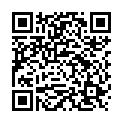|
|
|
| Module code: MAM_19_V_2.08.UVR |
|
|
3V+1S (4 hours per week) |
|
5 |
| Semester: 2 |
| Mandatory course: yes |
Language of instruction:
German |
Assessment:
Oral examination 20 min.
[updated 04.11.2020]
|
MAM_19_V_2.08.UVR (P241-0089) Engineering and Management, Master, ASPO 01.10.2019
, semester 2, mandatory course, Specialization Process Engineering
MAM_24_V_2.08.UVR Engineering and Management, Master, SO 01.10.2024
, semester 2, mandatory course, Specialization Process Engineering
|
60 class hours (= 45 clock hours) over a 15-week period.
The total student study time is 150 hours (equivalent to 5 ECTS credits).
There are therefore 105 hours available for class preparation and follow-up work and exam preparation.
|
Recommended prerequisites (modules):
None.
|
Recommended as prerequisite for:
|
Module coordinator:
Prof. Dr. Timo Gehring |
Lecturer: Prof. Dr. Timo Gehring
[updated 21.03.2019]
|
Learning outcomes:
After successfully completing this module, students will be able to identify environmental problems and develop methods to solve them, dimension them and estimate their costs.
They will be familiar with the main types of reactors and will be able to explain their construction, special features and application,
[updated 04.11.2020]
|
Module content:
Advanced industrial wastewater treatment and anaerobic technology, advanced environmental technology, soil remediation, exhaust air purification, selected current topics in environmental technology, sustainable technologies and processes, cost estimation,
Current aspects of bioprocess, environmental and process technology: Key topics from the fields of industrial microbiology, bioprocess engineering, environmental technology, environmental process engineering and related fields are offered. In addition to lectures, students will work on topics from current international publications in self-study, present and discuss them. Lectures from both industry and applied research, as well as visits to selected companies will also be an important part of the course. Overarching aspects of the course topics will also be examined, such as economic efficiency, ethics and global relevance. And, time will also be reserved for visiting selected relevant companies.
Introduction and basic terms, types of performance in reactors, reaction kinetics, Q-D diagram, reaction order, elementary, isochoric, irreversible, homogeneous reactions, elementary, isochoric, reversible, homogeneous reactions, reactions with catalysts, reactor types, residence time behavior of reactors, pulse function and frequency function, step function and transition function, ideal reactors, real reactors, conversion integral
[updated 04.11.2020]
|
Teaching methods/Media:
Lecture, seminar, presentations by students on selected topics based on original English language literature,
Visits to important companies, plants and trade fairs, presentations by external experts, group work on dimensioning environmental technology plants,
[updated 04.11.2020]
|
Recommended or required reading:
DWA u. DVGW Arbeitsblätter: A131 etc.
ATV Handbuch: Biologische Abwasserreinigung
Brock et.al.: Mikrobiologie
Ottow et.al.: Umweltbiotechnologie;
Fleischhauer et.al.: Angewandte Umwelttechnik;
Kraume: Verfahrenstechnik
Chmiel: Bioverfahrenstechnik
[updated 04.11.2020]
|


